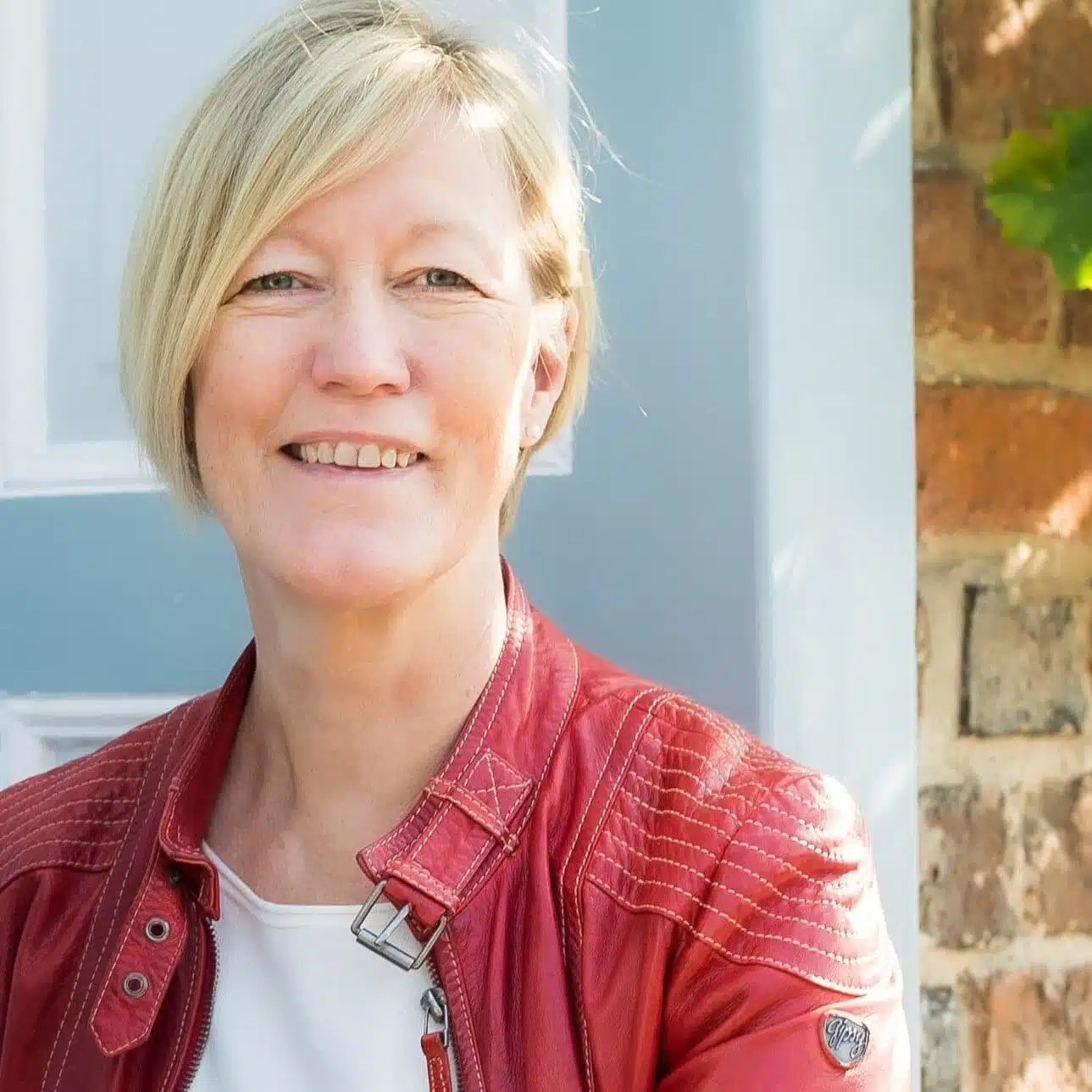It has certainly happened to you that you are going on a trip and you don’t have exactly the right medication in your first-aid kit. Why I ask for it? After all, a pharmacy can be found almost everywhere. That’s right. But none as unique as the Löwen-Apotheke pharmacywith its rooms worth seeing in a historic building dating back to 1230. Look with me behind the brick facade, discover the chamber of curiosities and the Löwen-Manufactur and meet Marcus Niendorf, the owner of the patrician house, who has created here together with his wife with creativity and imagination a real treasure in the Old Town of Lübeck.
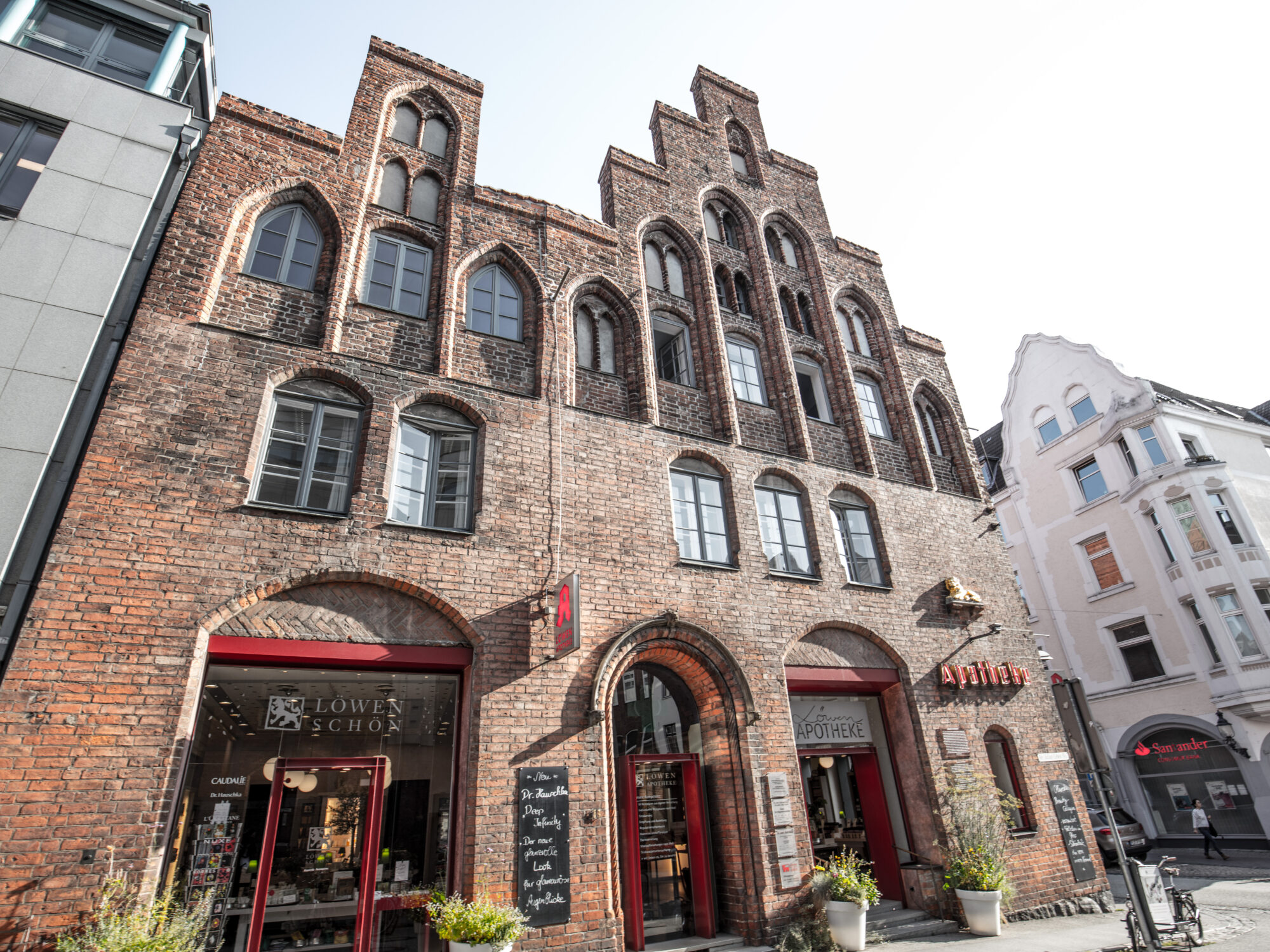
One of the oldest patrician houses in Germany
Almost every city tour includes the magnificent building on the corner of Königstraße/Dr. Julius-Leber-Strasse. After all, it has a rear façade that has been restored in Romanesque architectural forms. In 1375, the wife of the then German Emperor Charles IV resided here. The sovereign stayed in the building opposite. A plaque in the bay window of the house commemorates this special day, which is described in great detail in the council chronicle. According to the historic documents, the rooms of Her Majesty Empress Elisabeth were “most splendidly prepared” and “there was a deliciously covered walkway made from one house to the other across the alley from the window, so that both could go to each other when they wanted to.”
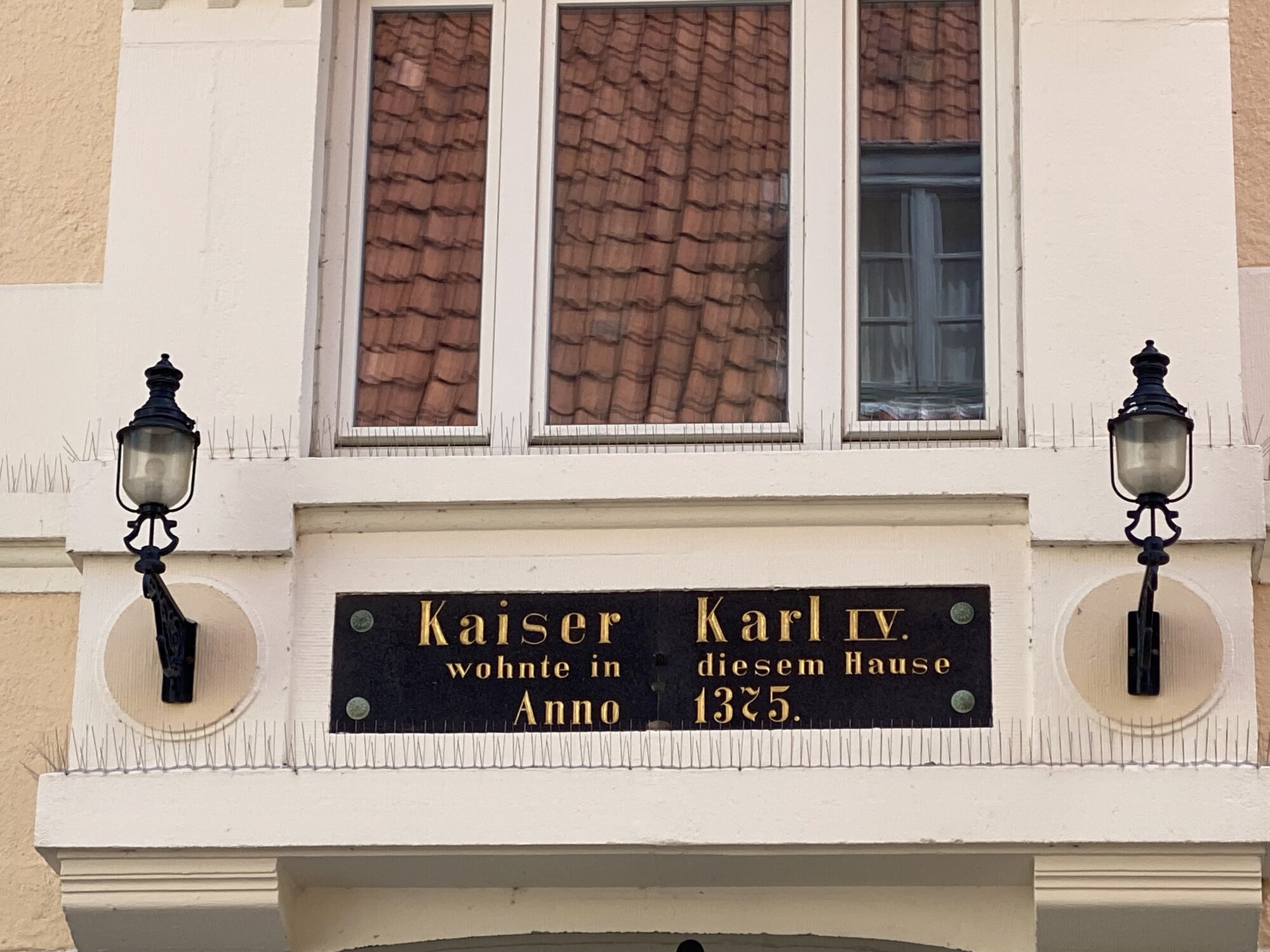
The city guides like to tell the story that the majesties quarreled during the day and the people of Lübeck waited under the balcony to see who would make the first step towards reconciliation. It is said that the emperor had to knock several times on his wife’s locked window before she allowed him to enter. Later, however, the high lords would have shown themselves together on the bridge and even exchanged a kiss. A wise decision. Even if there is no documentary evidence of the discord between the imperial spouses, Niendorf’s Löwenstark, one of the essential oils developed by Marcus Niendorf in his Löwen-Manufactur, would certainly have helped. It contributes to inner peace and serenity.
Adolf Sager opened the Löwen Apotheke pharmacy in this house on April 15, 1812. The pharmacy has been owned by Marcus Niendorf’s family for 125 years. The qualified pharmacist has been running it for 30 years with great skill in the fourth generation. Over the years, the desire grew in him to make visible the history of the house and the pharmacy, the healing profession of the pharmacist and its centuries-old knowledge.
On the occasion of a visit to Florence, the “Officina di Santa Maria Novella”, whose beginnings date back to 1221, inspired him to set a new focus and develop his own recipes. This thought felt fantastic. However, it took a few more years before he had the courage to make his occupation with curative ointments more than just a sideline and to put all his energy into the development of finely balanced formulations and thus into his Löwen-Manufactur.
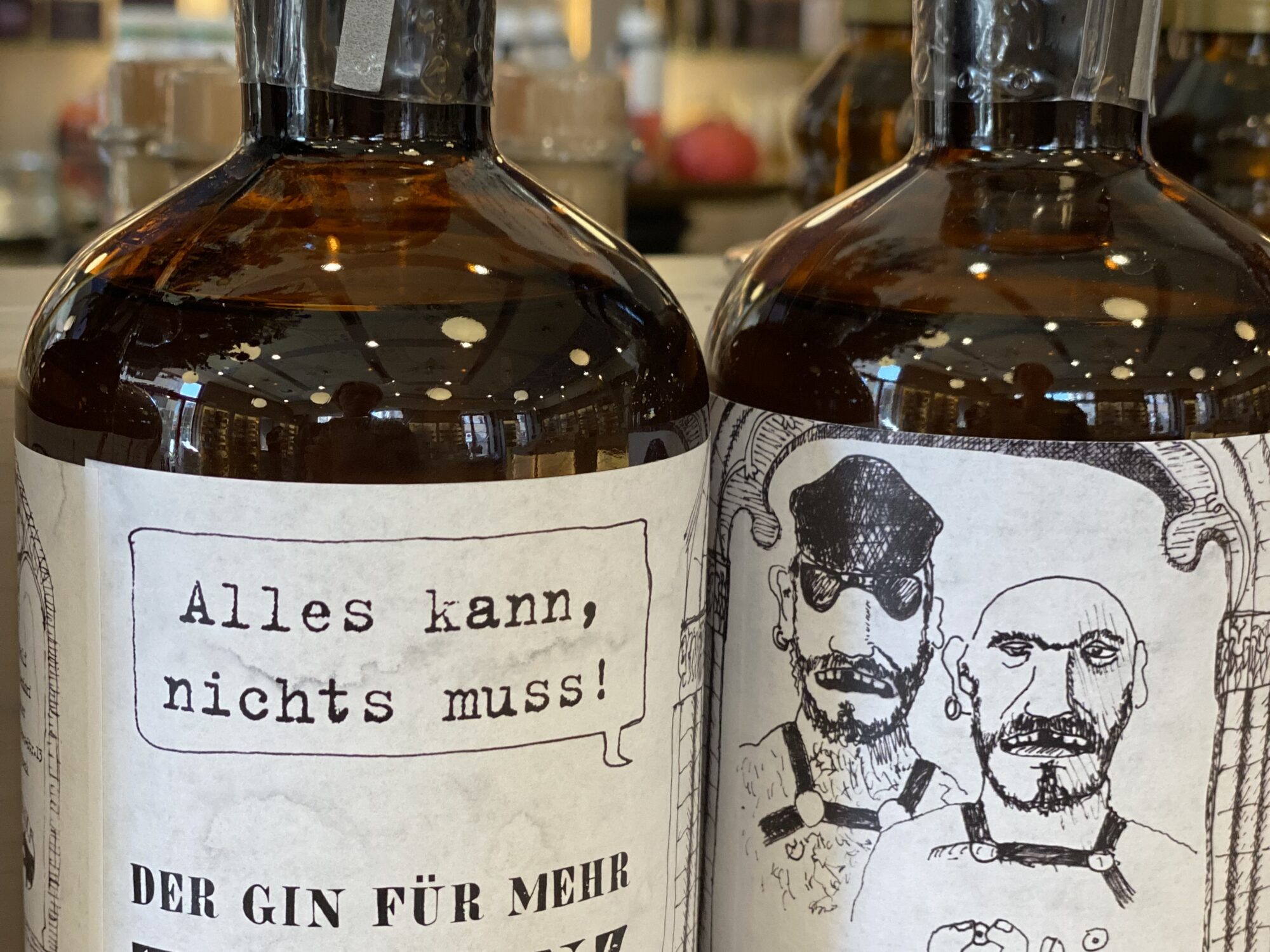
And as so often in life, one thing led to another. Soon he began with the reconstruction of the large sales room in the style of the court pharmacies and the monastery pharmacies of earlier times. These were often magnificently decorated, had high stucco ceilings and were decorated with paintings. For his high-quality herbal products, Marcus Niendorf created an ambience with a warm and at the same time representative aura. It is always a pleasure for me to linger without haste at the sales tables with soft background music under the vaulted ceiling decorated with golden stars.
The Löwen-Manufactur
The first recipe, the of the healing ointment 22, comes from his great-grandfather Adolf Brandt. To this day, Marcus Niendorf remembers the neat tin can and the pasty cream with the wonderful scent of vanilla.
The products from Löwen-Manufactur offer solutions for a wide range of different symptoms from herpes to heartache to cough. People with exam anxiety will find an essential oil that is both concentration-enhancing and relaxing, just as migraine patients will find a proven oil of marjoram, lemon balm and peppermint. A whole range of products administers to the needs of the female clientele and their home comfort in the different phases of life.
LISTEN
LÜBECK ZWISCHENTÖNE visited the Löwen-Manufactur in July and tasted the new gin! Have a listen:
Du hörst einen Snack aus der Gesamtausgabe der Lübeck Zwischentöne.
Die gesamte Folge des Podcasts hörst du auf www.luebeck-zwischenzeilen.de/podcast.
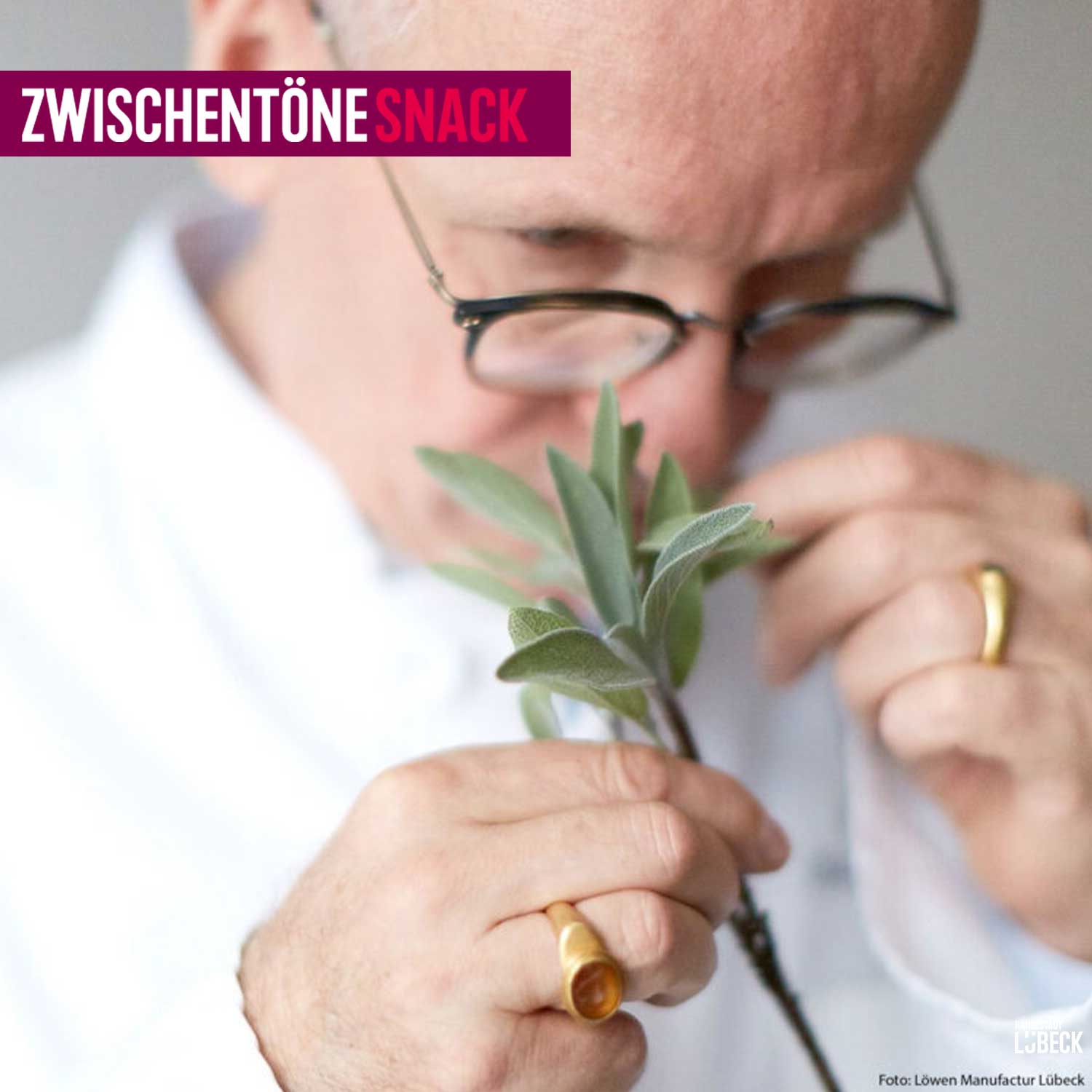

The effects of herbal ingredients are often proven by scientific studies. They confirm the extensive expertise that Marcus Niendorf has acquired over the past decades and the imaginative pharmacist in what he does. He takes deep pleasure in developing new formulations, finding a suitable name and designing high-quality packaging.
It is always said that behind every successful man there is a strong woman. In Marcus Niendorf’s case, the strong woman stands right next to him: Dietlind Wolf is more than just Marcus Niendorf’s wife – she is his muse and, as a graduate designer, a successful woman herself who has also made a name for herself internationally as a stylist, porcelain designer and photographer, among other things. I’ve been following her on Instagram for a long time and should dedicate a separate article to her work occasionally. Dietlind Wolf stages the products of Löwen-Manufactur for print products, the online store and the social media channels on Facebook and Instagram with her very own signature. Their ideas have of course also been incorporated into the design of the premises.
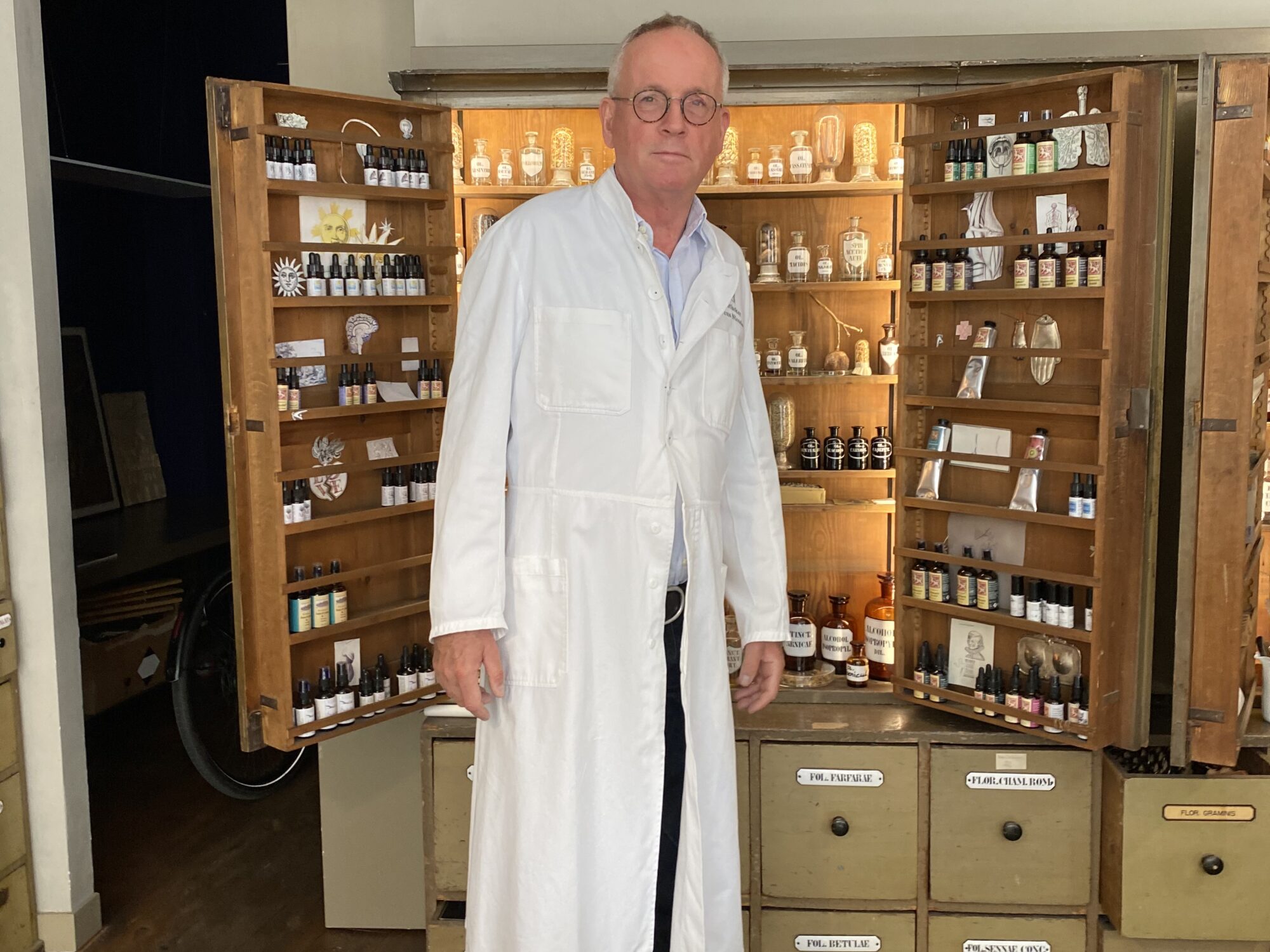
Poets and thinkers on the ceiling
Marcus Niendorf sees himself as an enthusiastic and interested layman – as he says himself, who has immersed himself in topics such as the history of pharmacy, art, botany, architecture and design with the knowledgeable and expert eye of a pharmacist and a great deal of enthusiasm. Therefore, it is always a pleasure to meet him in person in the showrooms. Inside it you get to know countless stories of incidents and people connected with the Löwen Apotheke: Ancestors and previous owners, but also Thomas and Heinrich Mann, Erich Mühsam, who was one of the signers of a petition to save the building in 1901, and Friedlieb Ferdinand Runge, the first apprentice pharmacist at the Löwen Apotheke and later discoverer of caffeine and quinine. The latter, in turn, was received in a private audience by Johann Wolfgang von Goethe.
In the near future, their portraits will adorn the ceiling of the adjoining room – the so-called “Wunderkammer” (chamber of wonders) – as a comic strip. A few drawings made by Marcus Niendorf himself are already hanging there as a trial.
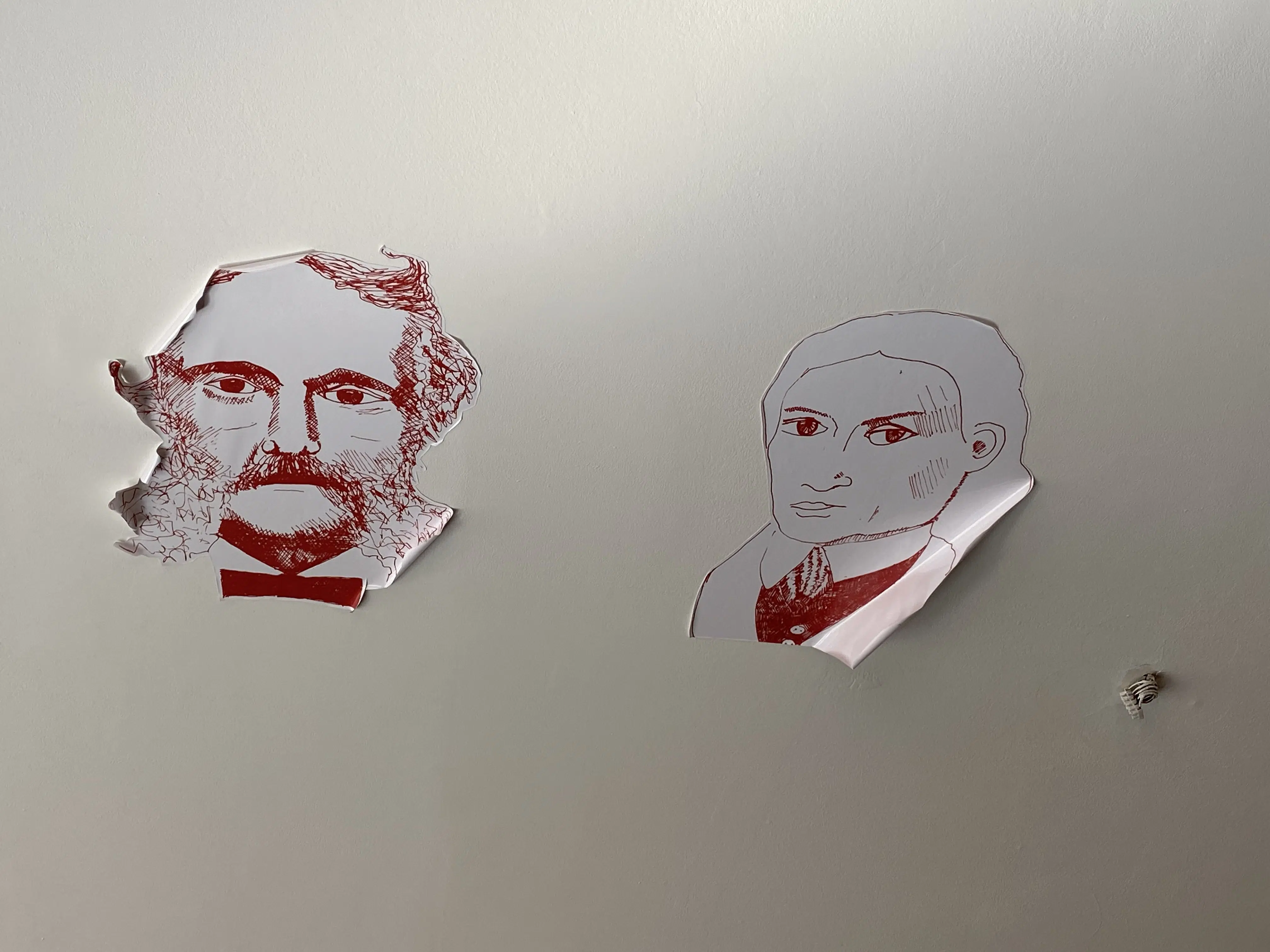
The chamber of wonders
This room, located next to the sales room, is a kind of museum and a real treasure. “Wunderkammer” – that was the name of the rooms that humanistically educated Renaissance princes had furnished for themselves in the 16th century. Here they displayed their valuable art and natural collections. Many pharmacies also looked similar at the time. The sales rooms invited the awestruck clientele to marvel at the wonders. Among them tusks of narwhals, ostrich eggs or corals. A crocodile also used to be part of a high-class pharmacy.
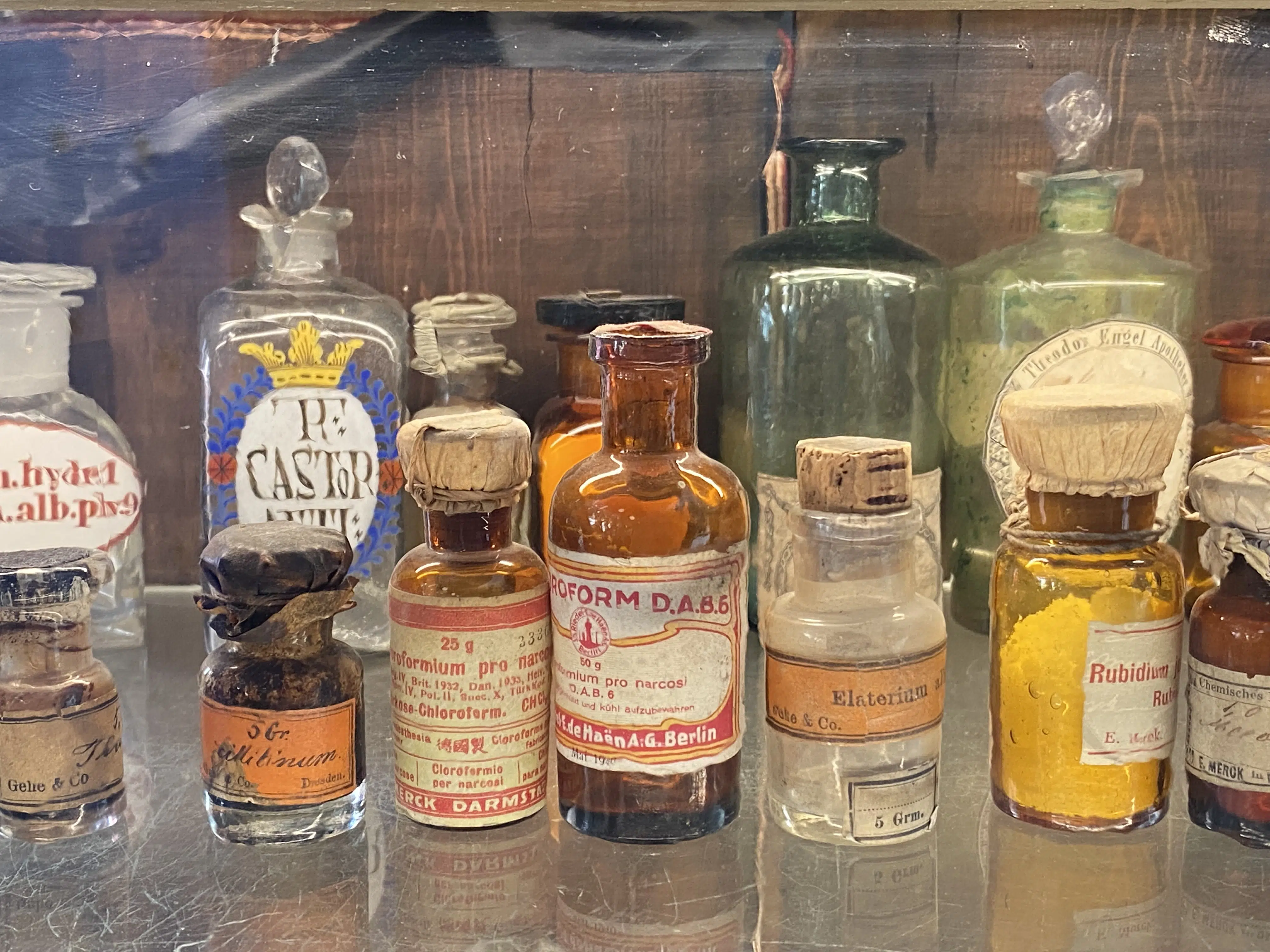
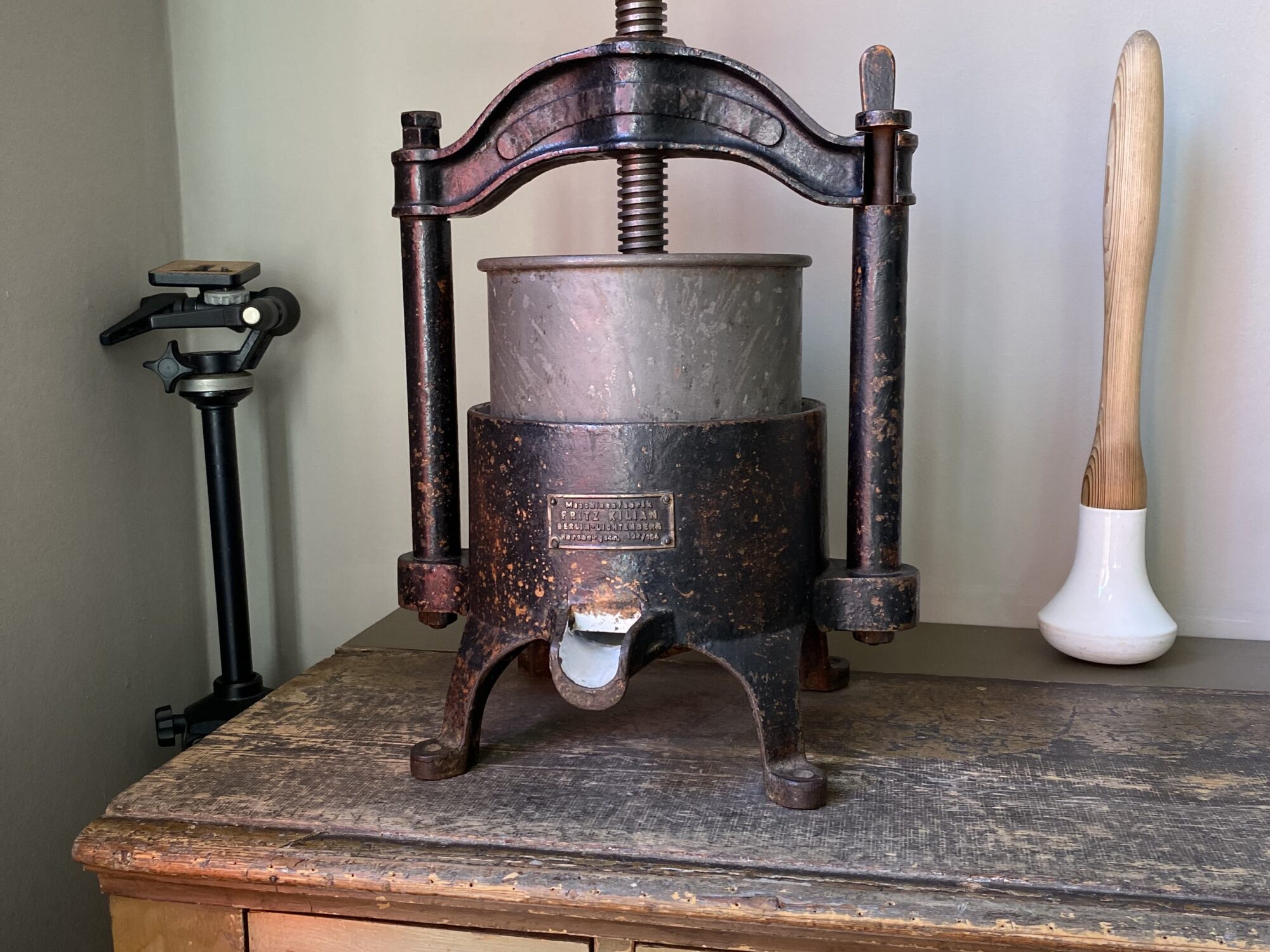
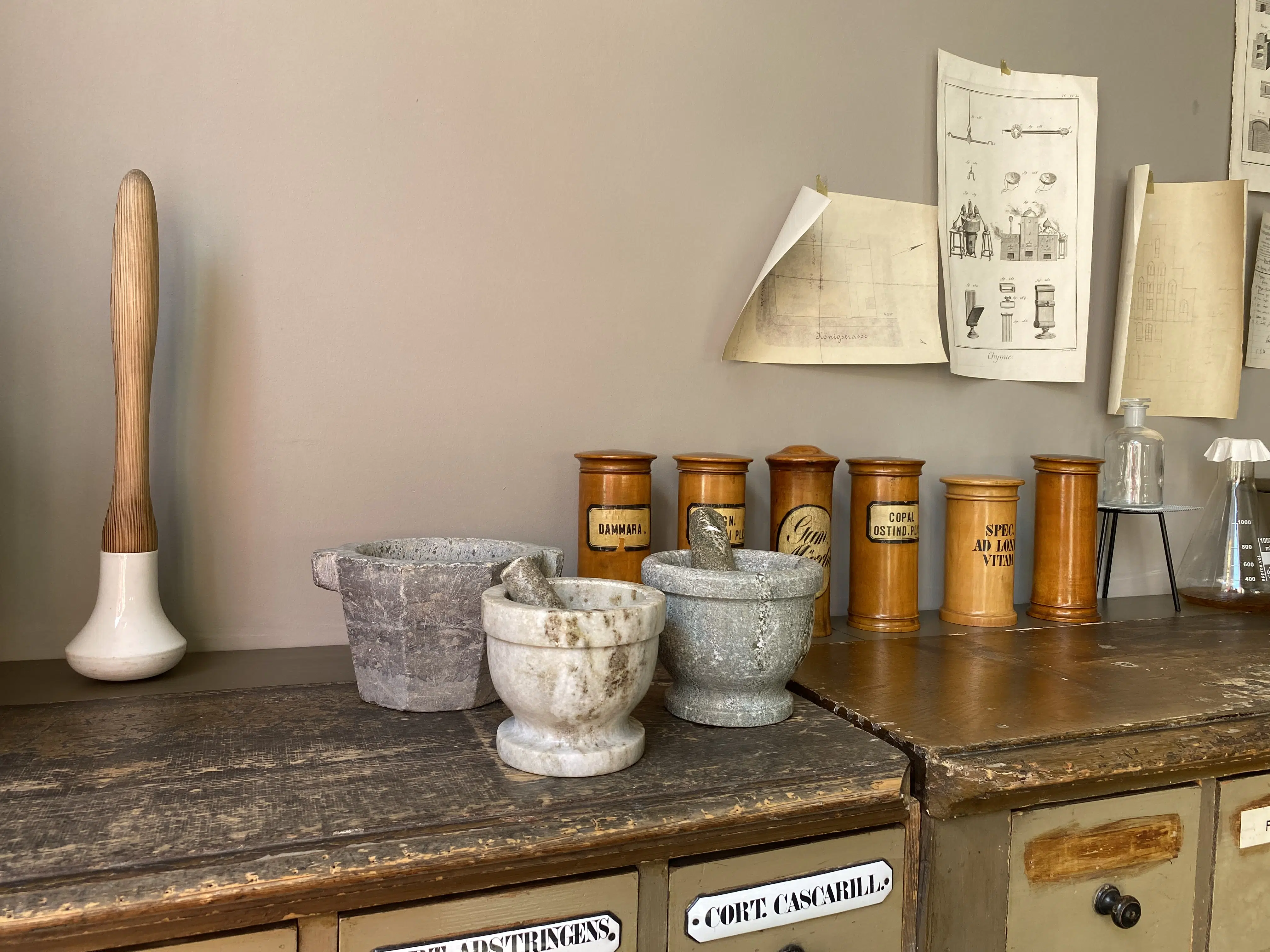
A crocodile also hangs on the wall in Niendorf’s Wunderkammer. The furniture comes from a pharmacy in Hamburg, which came to Marcus Niendorf’s attention through family contacts. It dates from about 1850 and has the unique patina of a pharmacy interior where people worked every day. This material chamber, more than 170 years old, had around 300 drawers. In the chamber of wonders of the Löwen-Apotheke you can marvel at pestles and mortars, fragments of ancient tree trunks, perfume bottles, faiences and glass retorts. Feel free to look around there. New treasures are always being added, because standing still is not the thing of this versatile man.
[Transparency] This article was financially supported by Löwen-Manufactur GmbH & Co KG.
